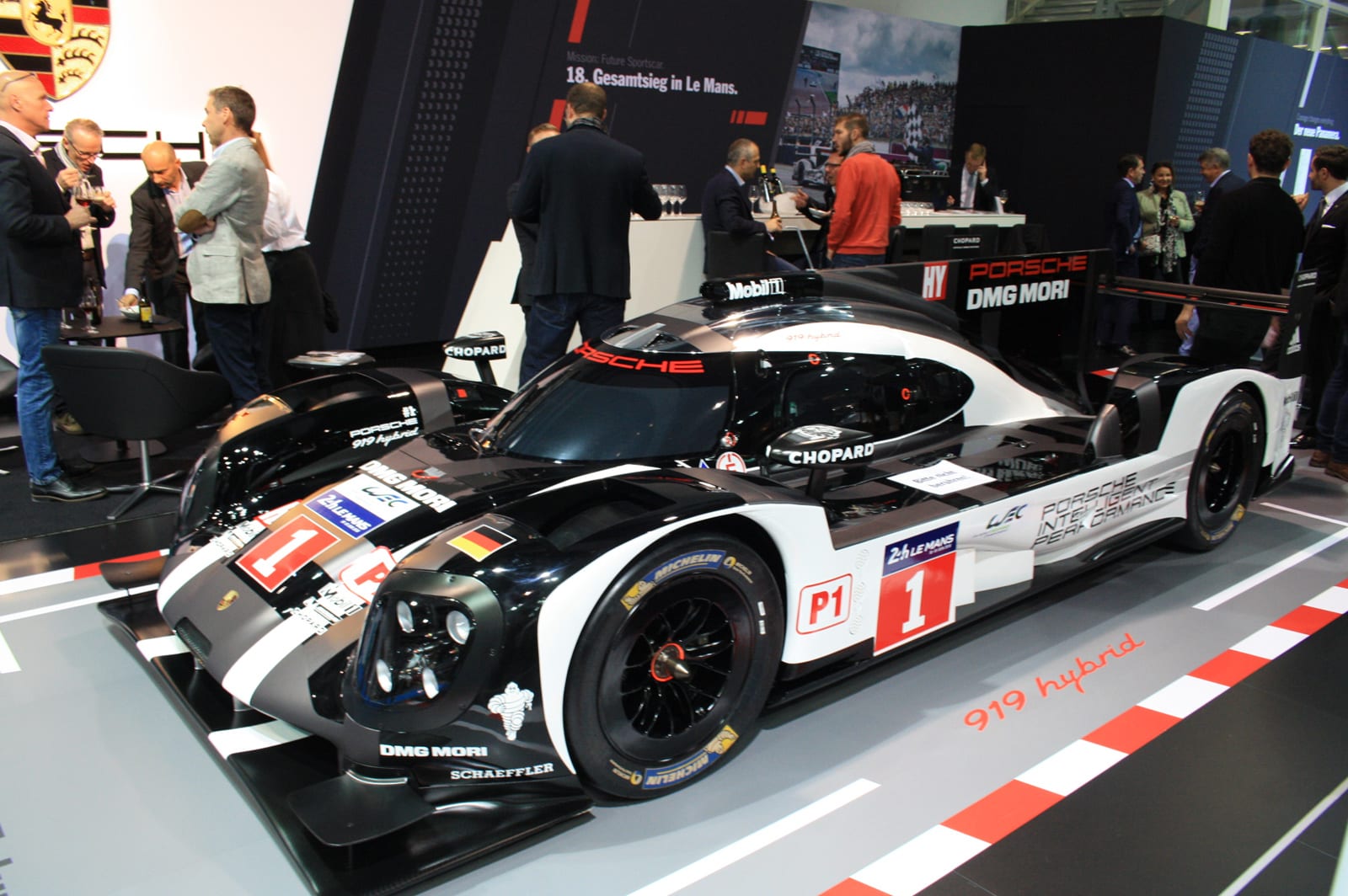Porsche: First Le Mans victory 50 years ago 🎥
MEILENSTEIN Exactly 50 years ago, on the weekend of June 13/14, 1970, Porsche celebrated the first triumph in the company's history at the 24 Hours of Le Mans. 18 further victories also had a signal effect on customer sport. Since Porsche took part in this endurance classic for the first time in 1951 and immediately won with the 356 SL [...]
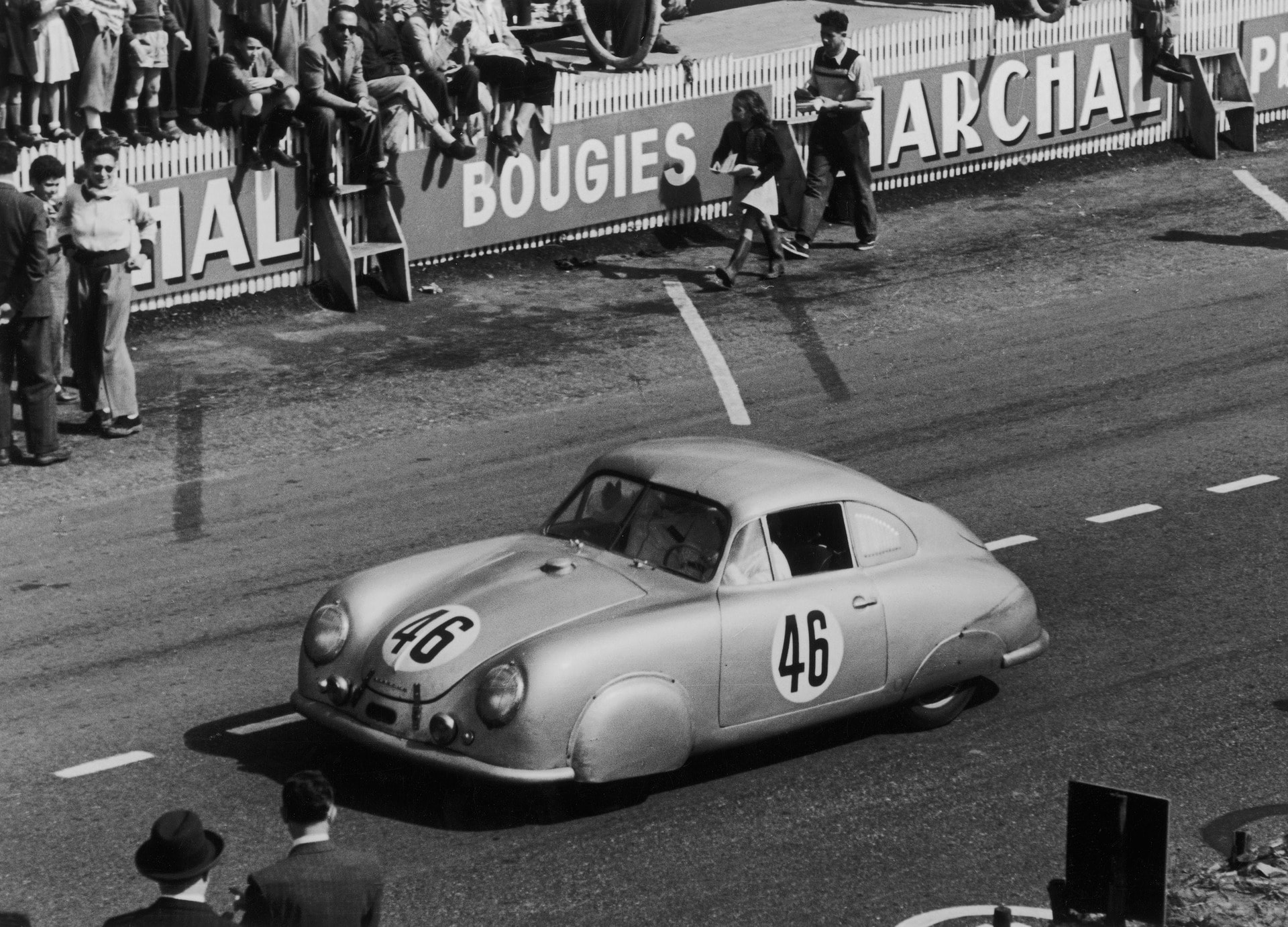
Le Mans June 23/24, 1951: Auguste Veuillet and Edmond Mouche achieve victory in the class up to 1100 cc with the Porsche 356 SL 1100 in the first outing of a Porsche at Le Mans (Photos: Porsche Archive).
Since Porsche took part in this endurance classic for the first time in 1951 and immediately achieved a class victory with the 356 SL - the first of 108 to date - the 24 Hours of Le Mans has become indispensable for the Stuttgart-based sports car manufacturer. But it was a long road to the first major triumph.
The two-minute film shows sequences from Le Mans in 1970 and 1971, when Porsche won for the first time with the 917. Unfortunately, the modern music is a bit distracting...
First underdog, then favorite and overall winner
Until the late 1960s, Porsche played the role of the underdog and successfully concentrated on the smaller displacement classes. The sports car manufacturer thus initiated a change in strategy.
In 1969, Porsche was only 75 meters or a good second short of victory in the closest Le Mans finish in history. But much of what had been learned previously was already incorporated into the preparation phase for the 1970 race. In addition to the first overall victory by Hans Herrmann and Richard Attwood with the 917 KH, Gérard Larrousse/Willy Kauhsen (917 LH) and Rudi Lins/Helmut Marko (908/02) made the triumph perfect for the brand with 2nd and 3rd place.
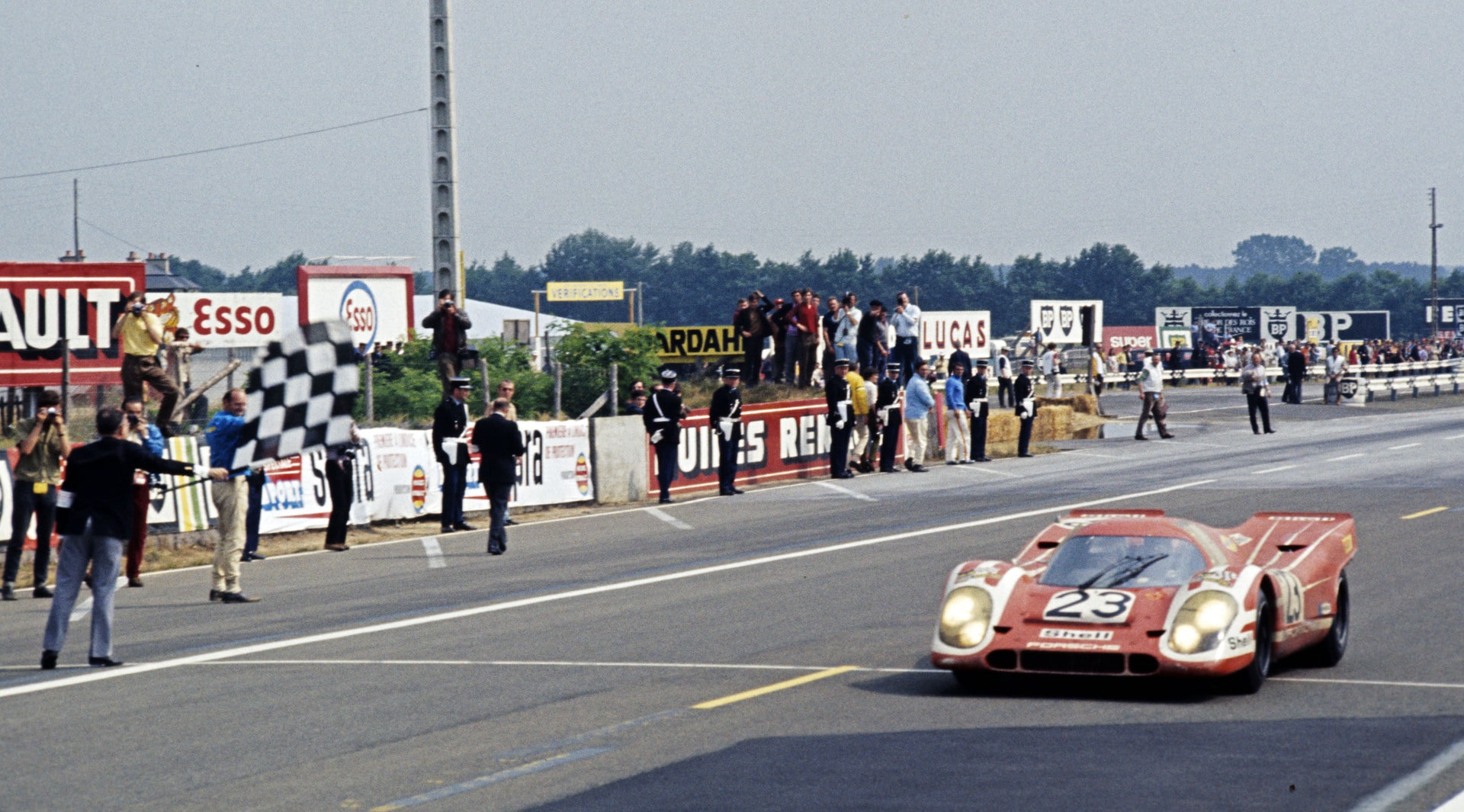
Signal effect
The first victory had a signal effect: 33 of the 49 starters relied on sports and racing cars from Stuttgart-Zuffenhausen just one year later - a record that still stands today. A Porsche 917 KH also won in 1971. In 1974, Porsche ushered in the turbo era at Le Mans with the launch of the 911 Carrera RSR Turbo 2.1.
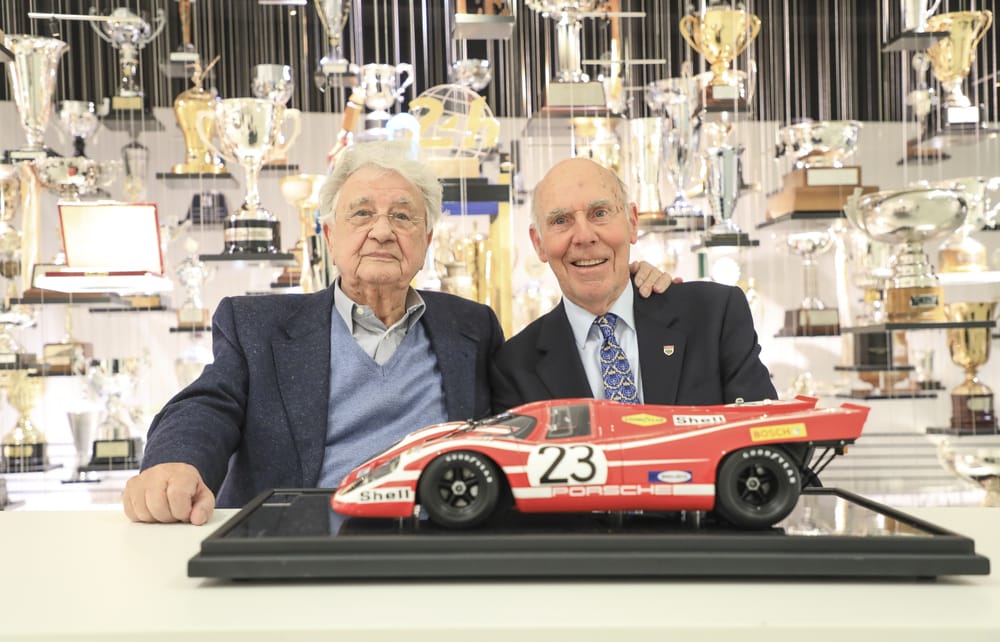
In 1976, Porsche achieved the first turbo victory in the history of the race with the 936 Spyder. The following year, the works team won again with the same model.
Two years later, a customer team entered the list of winners for the first time. The success of the Kremer Racing customer team with a 935 K3 marked the first victory for a rear-engined racing car at Le Mans - and for a production racing car based on the Porsche 911.
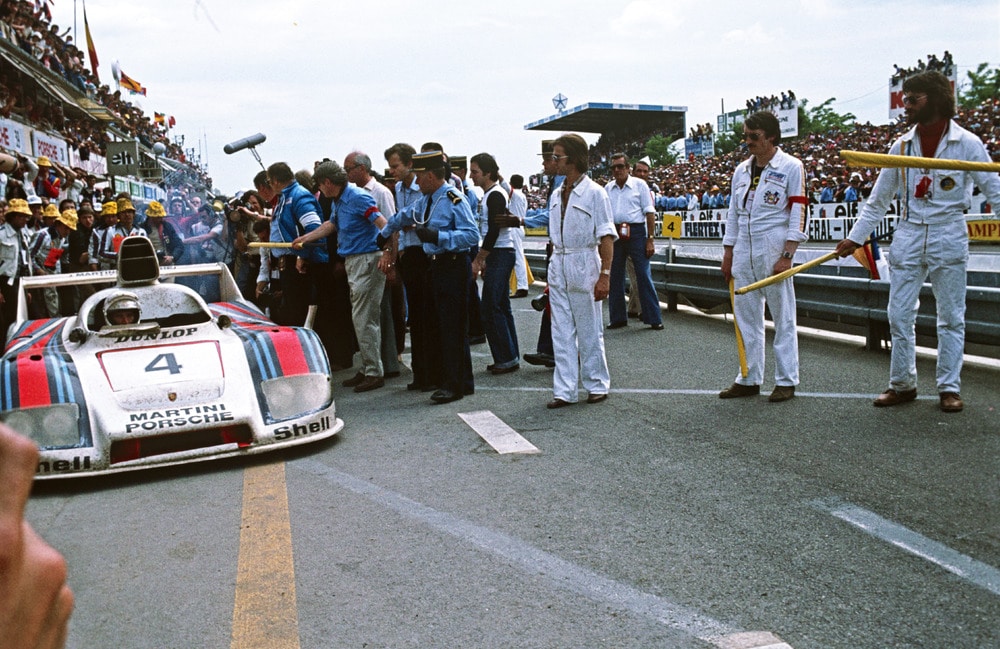
Dominance in Group C
From 1981 to 1987, Porsche racing sports cars remained unbeaten at Le Mans. The longest winning streak in the history of the 24 Hours began with the third and final success of the Porsche 936 Spyder.
In 1982, the works team brought the new Porsche 956 in accordance with Group C regulations to the finish line in the first three places at its debut in Le Mans. From 1983, customer teams also competed with the 956 and the successor model 962 C. Nine Porsche 956s finished in the top ten in 1983, and eight each in 1984 and 1985.
Overall victory for the company anniversary
The factory and Porsche customer achieved four overall victories in the 1990s with three types of racing car. It all started in 1994 with the Porsche 962 Dauer Le Mans GT developed in Weissach on the basis of the 962 C, followed by the TWR-Porsche WSC Spyder from Joest Racing in 1996 and 1997.
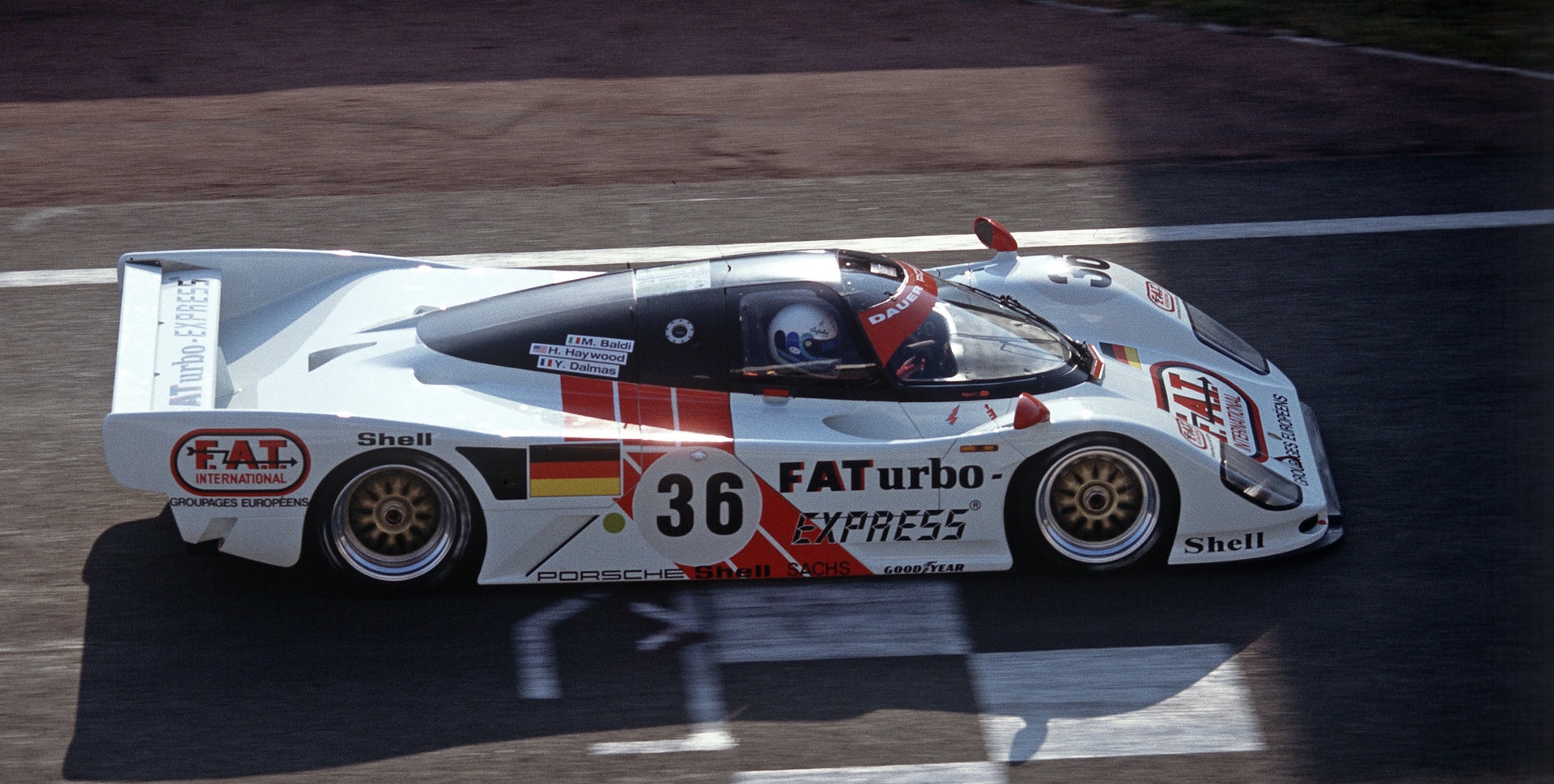
Finally, in 1998, the Porsche 911 GT1 '98 rolled onto the starting grid with the first carbon fiber monocoque designed by Porsche and carbon fiber brakes used by the factory team for the first time - and thus won on the 50th anniversary of the general operating license of Porsche's first sports car, the 356 "No. 1" Roadster.
Following this success, Porsche dedicated itself to the development of close-to-production racing versions of the Porsche 911 and the support of private teams. At Le Mans, this commitment was rewarded with eleven class victories between 1999 and 2018.
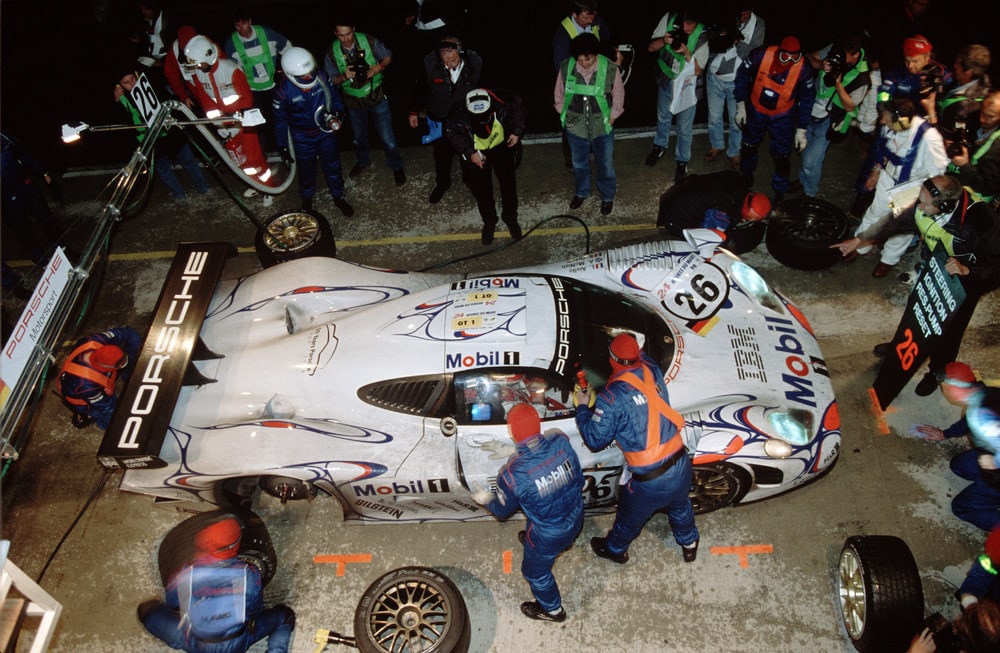
Hat-trick in the Hybridaera
In 2014, the works team returned to the race for overall victory with the Porsche 919 Hybrid. The overall system of electric motor and combustion engine delivered around 900 hp. With this avant-garde solution, Porsche achieved a hat-trick from 2015 to 2017.
Returning with a new sports car?
Weissach is currently evaluating whether it makes sense to return to the factory in two or three years' time with a sports prototype with hybrid technology that can be used both in Europe at Le Mans and in the USA, for example at Daytona and Sebring, in accordance with the newly introduced LMDh regulations. This would mark the 20th overall victory in the world's biggest endurance race.
